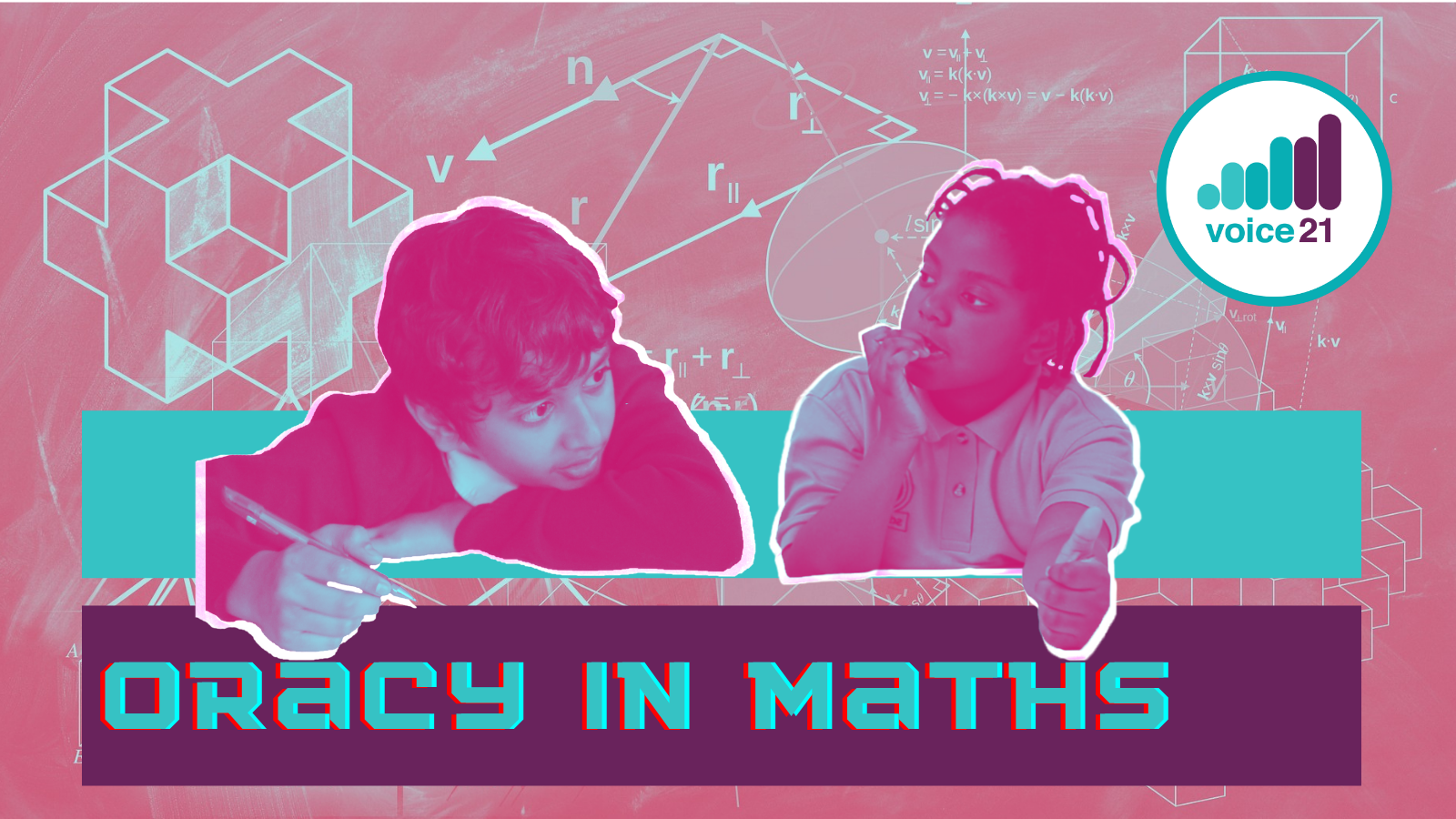On 31st March the second workshop on oracy and secondary maths, run by the Boolean Maths Hub and Voice 21, took place online. Read more from Voice 21 Educational Content Producer, Victoria Cook, as she explores how we can establish a classroom culture in which uncertainty in maths is both expected and celebrated.

Teachers began by sharing their experiences in schools since we last met on 8th March. Despite the added pressures of high staff absence, positive changes have begun to take place in all maths departments. Particularly inspiring was the enthusiasm from students and a sense that there was now a real ‘buzz’ about their maths lessons. One parent had also expressed their delight that their child was starting to interact in maths. To hear of such impact after a matter of only a few weeks is a real testimony to the power of oracy.
We talked about the success of using a ‘silent summariser’, whose job is to listen and summarise a discussion. Realising the power of a silent role, one teacher described how she has added a second silent role that she calls the ‘left field’. Generalising and proving is central to maths, and the role of the left field is to find an example that doesn’t work, disproving the conjecture. It may be that the left field doesn’t have anything of value to add to the discussion, but the act of listening with the purpose of trying to disprove the group’s conjecture helps to deepen mathematical reasoning. At Voice 21 we often talk about a ‘devil’s advocate’ whose role is to challenge ideas in a discussion, but the role of the left field is more focused than this. The idea of having subject-specific discussion roles is something that we would like to explore in the future.
In our previous session we had talked about the importance of authentic questions in maths, or questions that do not have prespecified answers. In our second session, we began to unpick this further and we wondered the extent to which students believe that the questions we ask are truly authentic. The commonly held perception that maths is either ‘right’ or ‘wrong’ may hinder our attempts to engage students in genuine open-ended, exploratory discussions.
Establishing a classroom culture in which uncertainty in maths is both expected and celebrated is key to overcoming this barrier to talk. Establishing such a culture will take time, but should focus on:
Between now and our next session the teachers will continue to implement these ideas in their classrooms as we work towards refining our final research question.
© 2024 Voice 21. Voice 21 is a registered charity in England and Wales. Charity number 1152672 | Company no. 08165798